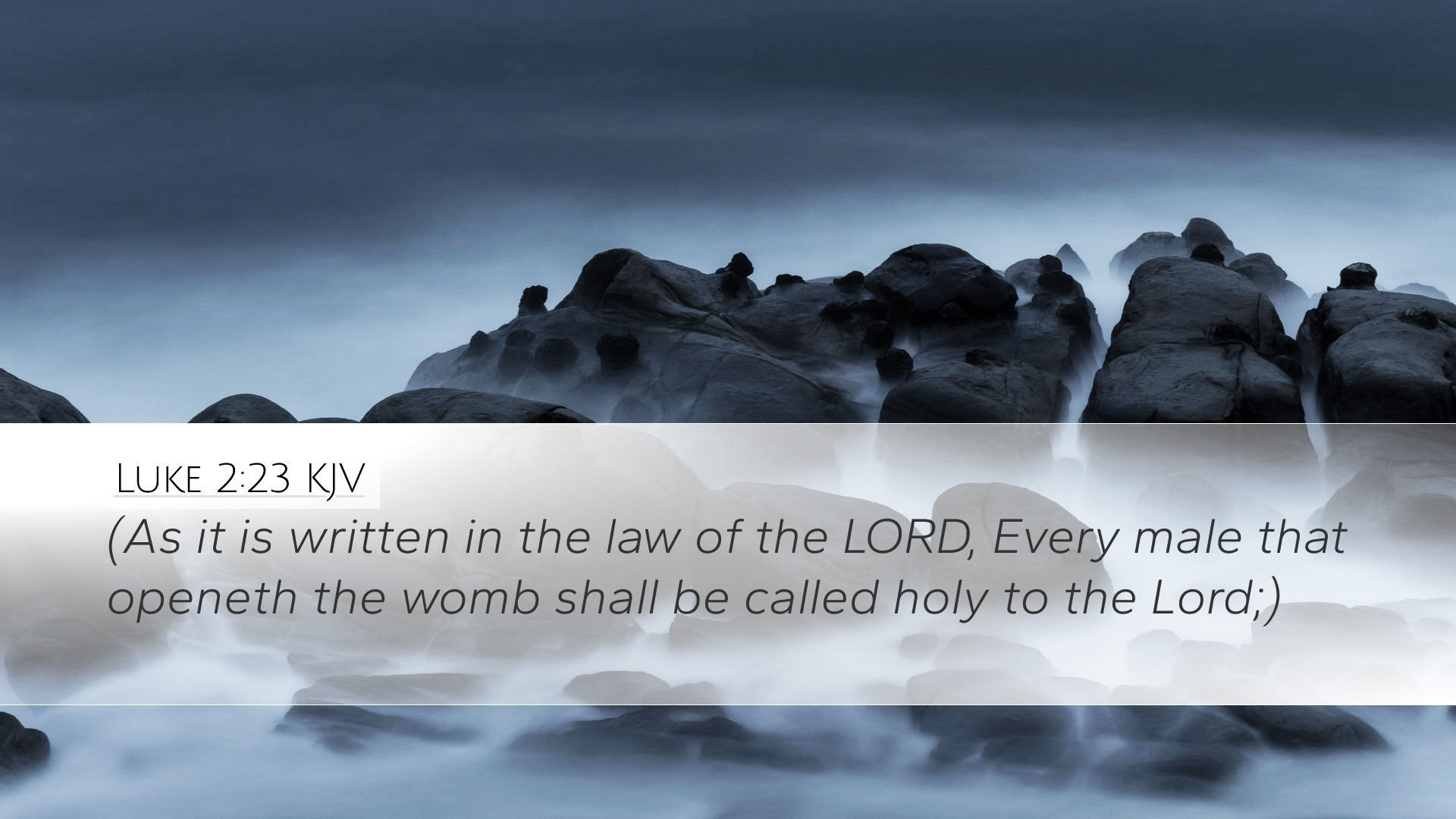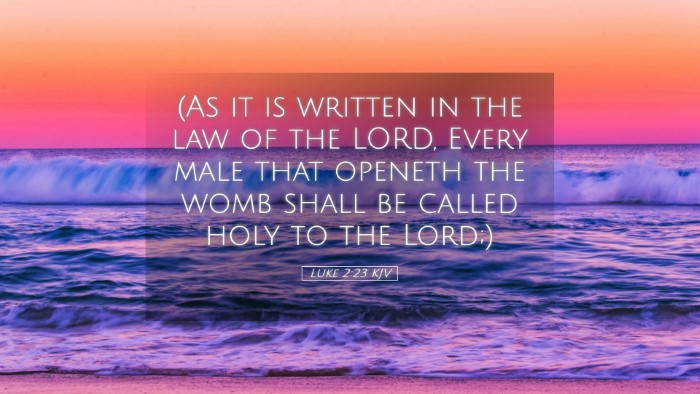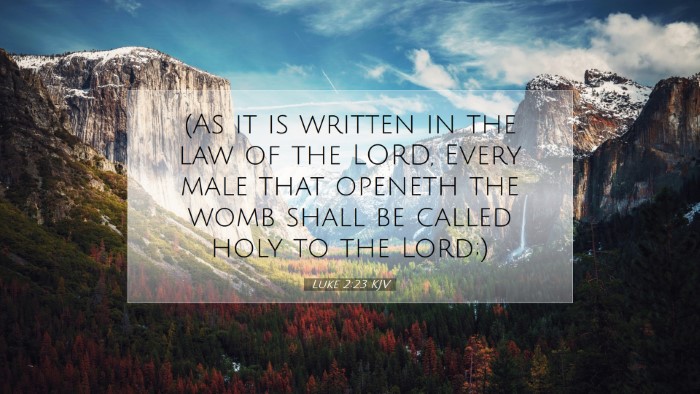Commentary on Luke 2:23
Luke 2:23 states: "As it is written in the law of the Lord, Every male that openeth the womb shall be called holy to the Lord." This verse draws attention to the specific Jewish practices and the fulfillment of the law regarding the consecration of the firstborn male, a theme deeply enshrined in the Jewish tradition.
Introduction
This verse is pivotal not only in its narrative context but also in its theological implications. In his Gospel, Luke emphasizes the connection between Jesus and the Jewish law while showcasing Jesus' identity as the Messiah. Various commentators provide deep insights into the meaning and implications of this verse.
The Significance of the Firstborn
The law referenced in Luke 2:23 is rooted in Exodus 13:2, where God commands that every firstborn male must be consecrated to Him. This requirement serves as a reminder of God's deliverance of Israel from Egypt:
- Matthew Henry notes that the practice of dedicating the firstborn illustrates God's claim over all creation, particularly those who serve as the foundation of family units.
- Albert Barnes emphasizes that such dedication signifies a recognition of God’s sovereignty and serves to sanctify the family, establishing an early practice that draws attention to the importance of setting apart one's initial fruits for God.
- Adam Clarke comments that this was a joyous yet solemn duty, which not only honored God but also reminded the people of their heritage as a chosen nation.
The Context of Jesus' Presentation
Jesus' presentation in the Temple symbolizes compliance with the Mosaic law, demonstrating his identification as a faithful Jew:
- Matthew Henry elucidates that Jesus’ adherence to this law reflects his role as the embodiment of the Law and the fulfillment of its requirements.
- Albert Barnes mentions that this moment serves as a theological confirmation of Jesus as the rightful heir to the promises made to Israel.
- Adam Clarke underscores how this act fulfills not only the letter of the law but also its spirit, showing that in Christ, the law finds its ultimate purpose.
Theological Implications
The acknowledgment of the firstborn as 'holy' underscores the sacredness associated with Jesus as the Son of God:
- Matthew Henry reflects on the notion of holiness, suggesting that this designation separates Jesus for a special purpose in God's redemptive plan.
- Albert Barnes argues that the holiness conferred upon Christ serves as recognition of His divine nature and His role in salvation history, making Him the ultimate holy offering.
- Adam Clarke points out that this dedication prepares the ground for the ultimate sacrifice that Jesus would later embody, presenting Him as both the firstborn and the ultimate sacrificial lamb.
Insights for Pastoral Application
For pastors and church leaders, this passage carries a weighty message about the importance of holiness and dedication in the life of believers:
- Emphasize the need for continual consecration and setting apart for God's purposes in the life of the church.
- Encourage families to engage in practices that acknowledge God’s sovereignty over their lives, echoing the tradition of dedicating the firstborn.
- Highlight the significance of Jesus’ fulfillment of the law, providing a basis for grace rather than mere obligation, allowing the congregation to appreciate the depth of their faith commitment.
Application for Theological Reflection
Theologians can derive several critical reflections from Luke 2:23:
- What does it mean for Jesus to fulfill the law regarding the firstborn? How does this reconciliation of law and grace inform our understanding of Christ’s identity?
- In what ways can the concept of holiness in this passage be applied to modern Christian living, particularly in understanding our identity in Christ?
Conclusion
Luke 2:23 serves as a profound testament to Jesus' relation to the Jewish law and His role as the holy sacrifice. By embedding the story of His early life within the framework of the law, Luke not only recounts historical events but also the theological significance that ripples through the entirety of Scripture. The insights gained from public domain commentaries enrich our understanding of this verse, providing layers of meaning that speak to the heart of the Christian faith. Each commentator adds a thread to the tapestry of meaning, reflecting the multifaceted character of God’s revelation in Jesus Christ.


